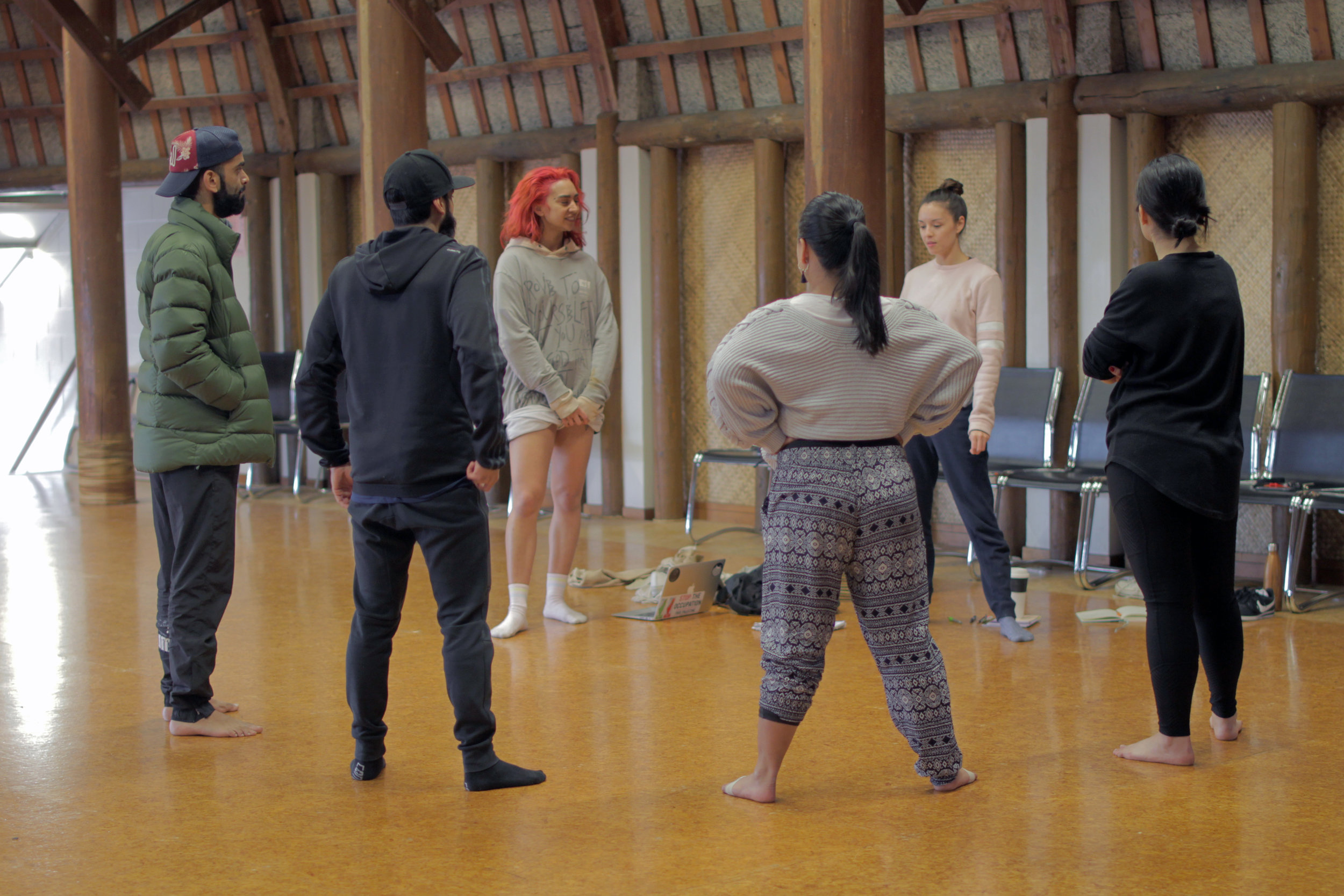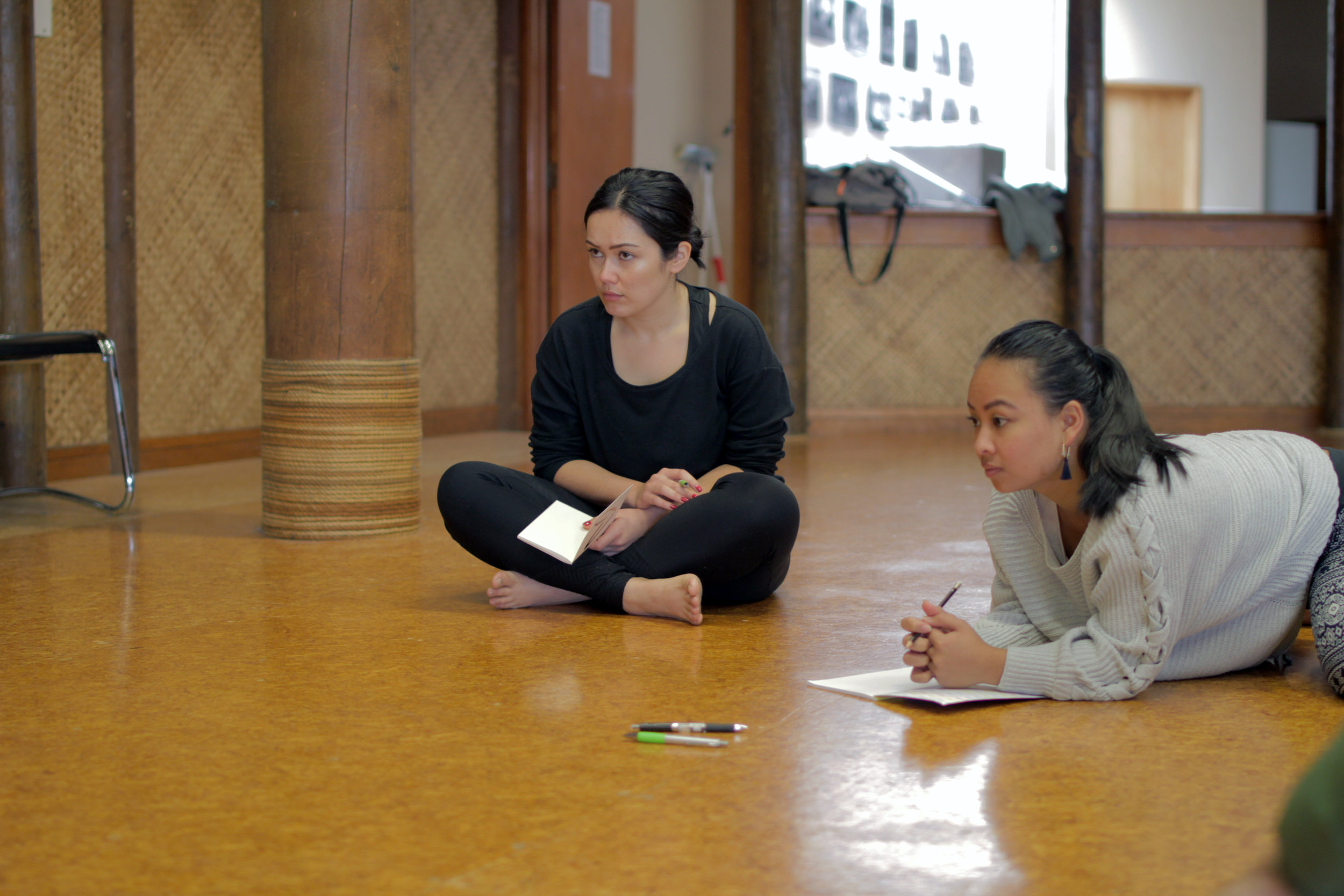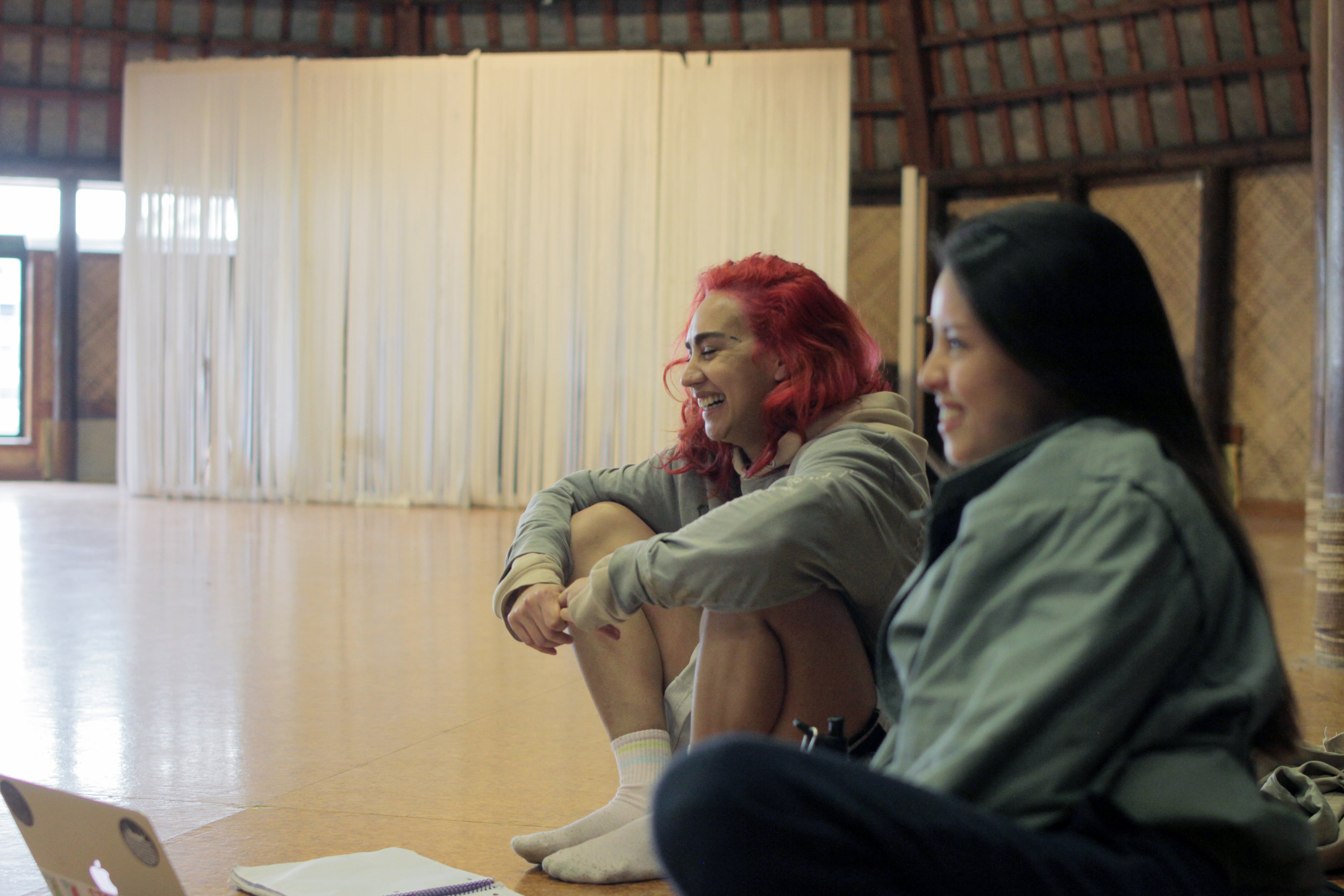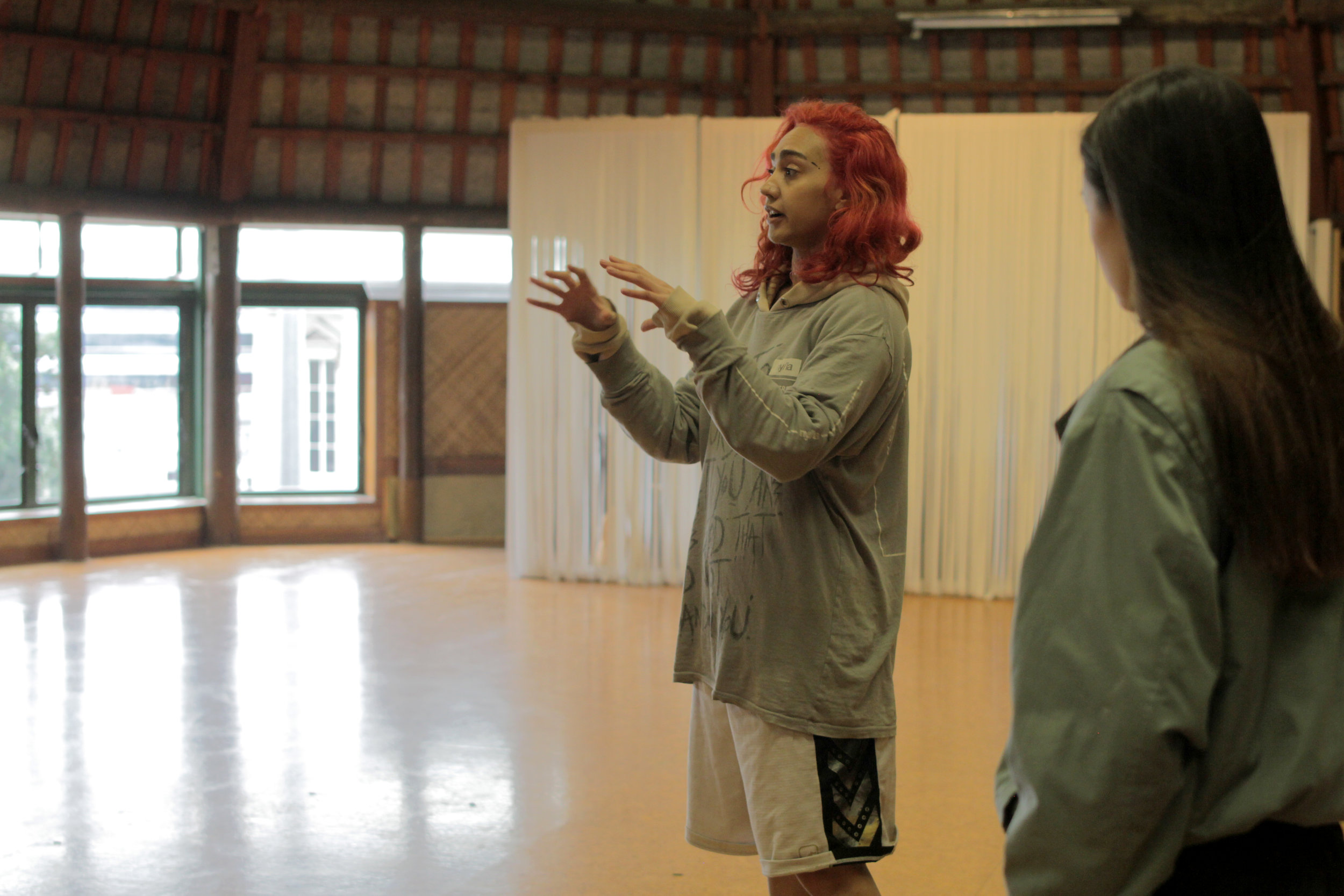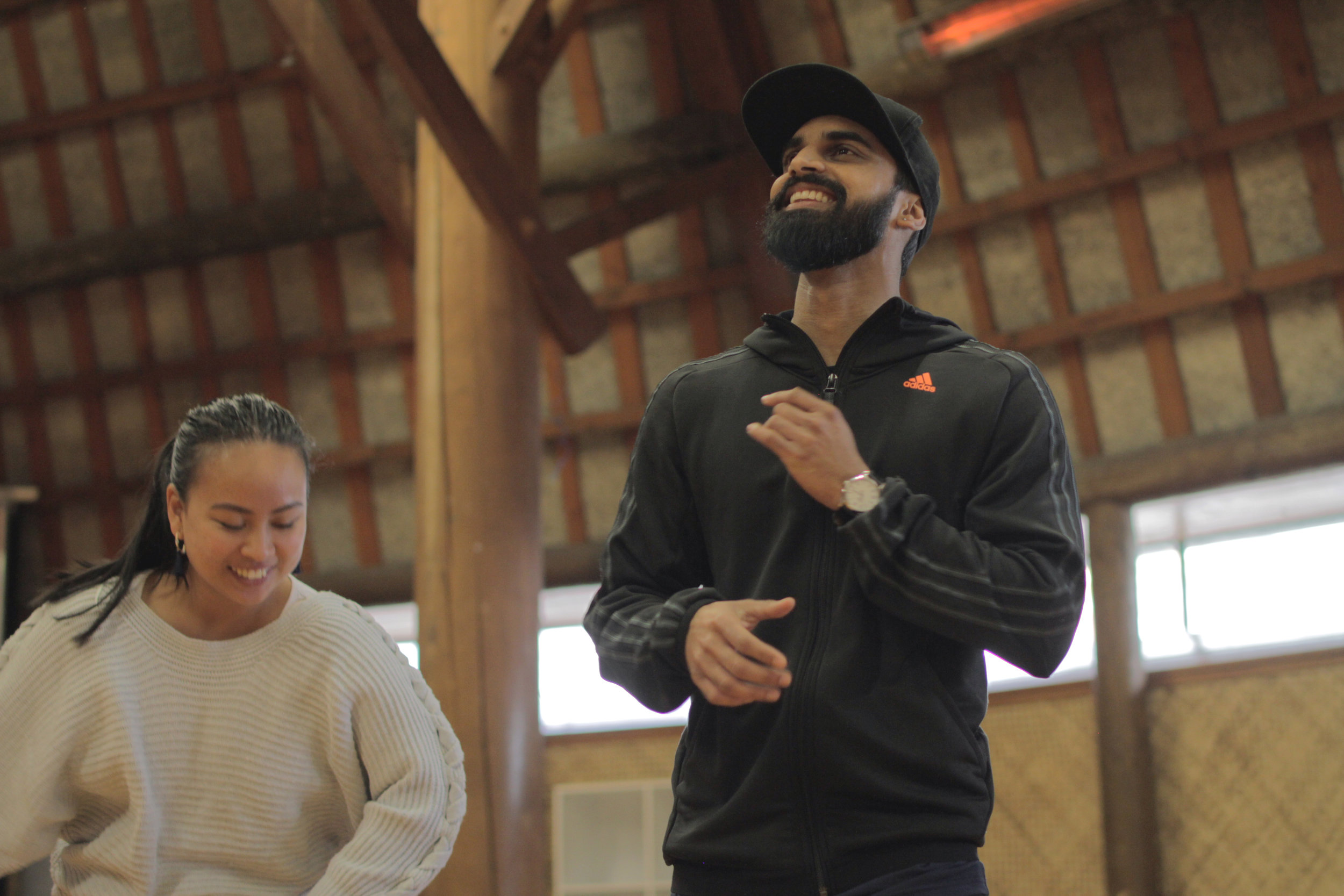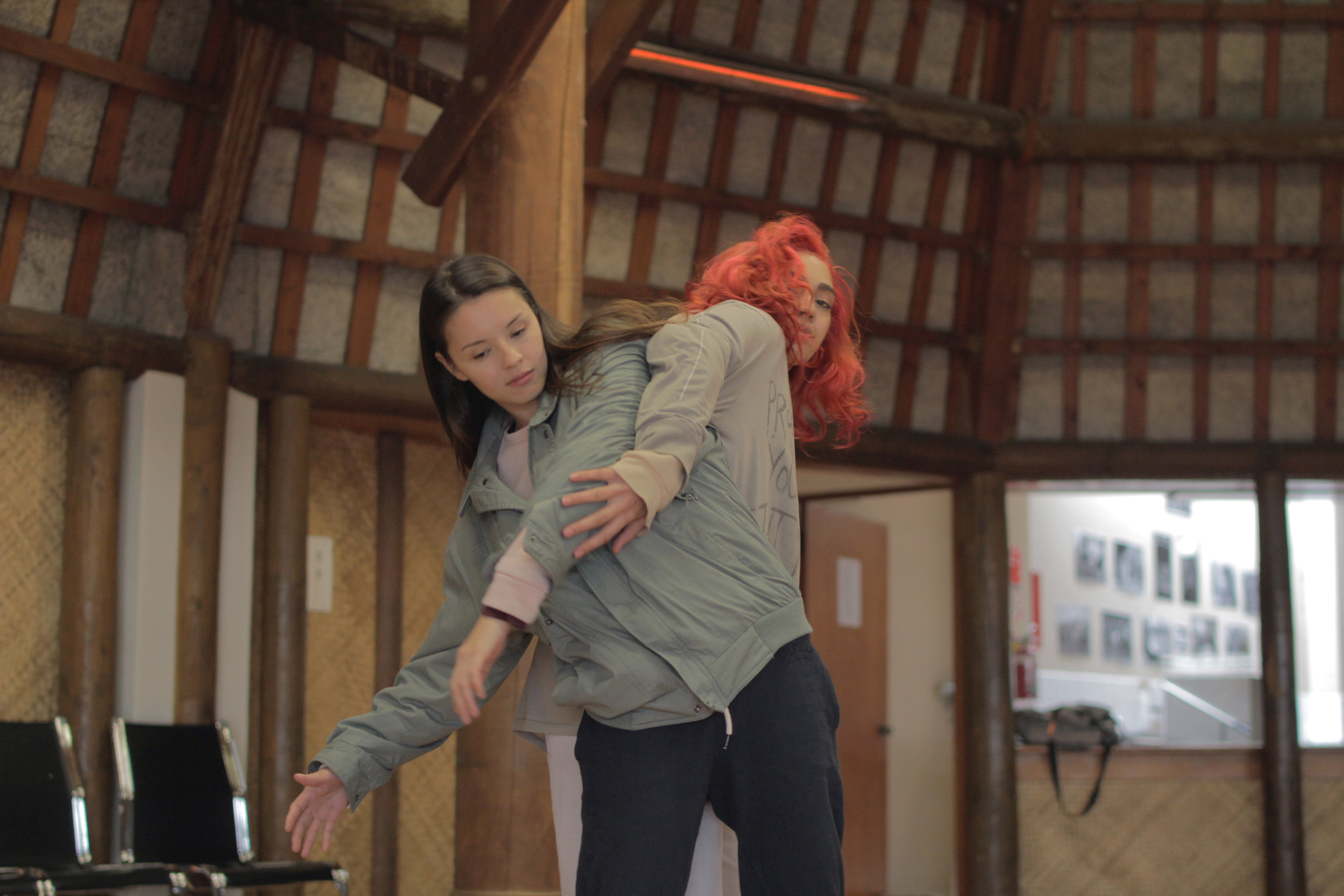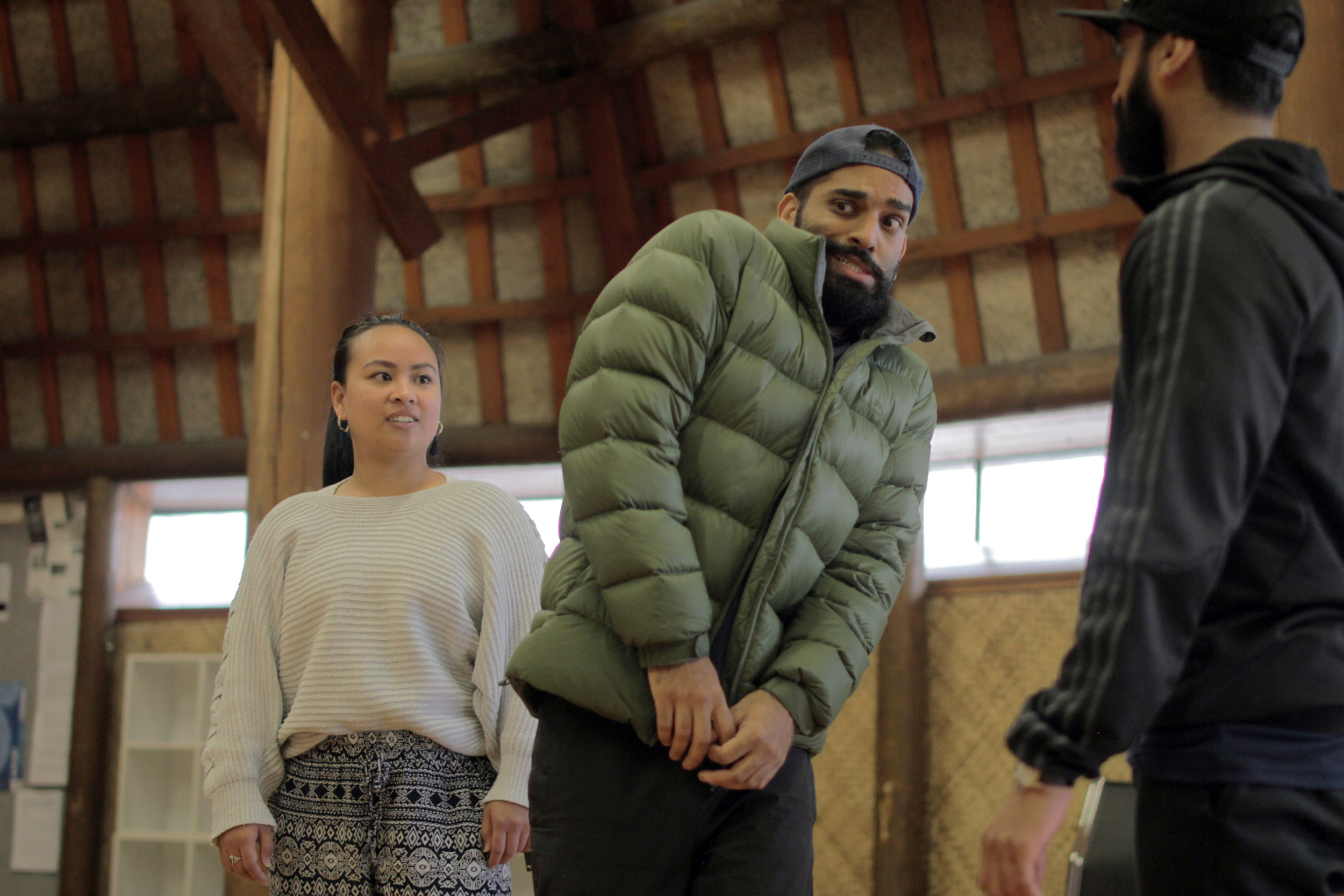Check out Natasha Daniel and Mayen Mehta from the cast of Orientation talk about the twists and turns of dating as diaspora with director Chye-Ling Huang and Dionne Christian from The Herald.
Redefining what are our stories
Dionne Christian talks to theatremakers about their contributions to NZ Theatre Month and how the stories we tell are changing
- Weekend Herald
- 1 Sep 2018
Mayen Mehta, actor
Today marks the start of the first New Zealand Theatre Month, started by playwright Roger Hall to “celebrate and elevate” local plays and playwriting. It sees some 600 performances and 100 events staged by more than 70 organisations, including professional theatre companies, community theatre groups and schools.
‘YOU'RE PRETTY HOT — FOR AN ASIAN.’
It was a first date and drinks were going well — until Chye-Ling Huang's date uttered those six words loaded with generations of social conditioning, racist attitudes and pre-conceived ideas.
Huang, who co-founded Auckland-based Proudly Asian Theatre with comedian James Roque, admits to feeling confused.
After all, the person blurting out the backhanded compliment was herself bi-racial with Asian heritage but had just said she only ever dated white people.
“I said, ‘If you were white, I probably would have thrown my drink at you and just left,' '' Huang says.
“It would have been game over but, because they were Chinese, I was so conflicted because I've been there with this internalised racism toward your own people.
“I just felt a huge empathy toward her because I know that, as diaspora, you do grow up learning that white people are the goal, white people are the prize. I stayed to talk about what she said but, in the end, I decided I didn't have time to be anyone's learning curve.''
The timing of the experience was uncanny given Huang has written and is directing the play Orientation. It's a social satire that follows a young Chinese-Pa¯ keha¯ woman, Mei, in a brazen “sexploration” of Asian love and sexuality in contemporary New Zealand.
With an all-Asian cast, Orientation digs deep at social attitudes towards Asian people as lovers and considers what part race plays in decisions made around love and sex. Natasha Bunkall plays Mei, the young woman working through some identity issues.
“She feels that she's only ever dated white men in the past; she's working out why that is, her personal and identity issues around being biracial, so she's decided to date Asian men and see how she goes to get to a point that she's not seeing race.''
Natasha Daniel, Kiwi-Asian actress
Huang says many of us think attraction is inherently biological but she believes it comes down to socialisation too: “If you're raised to think white people are better than your own race . . . and let's not forget there are white men who fetishise Asian women. No one is born thinking like that.''
Huang and Proudly Asian Theatre's work centres around identity politics but she acknowledges its last play, Call of the Sparrows, was far removed from modern-day New Zealand. She says Orientation is “close to the bone” because it's set in the here and now and she wanted it to reflect the Auckland diaspora experience in 2018.
Ask Bunkall and fellow actor Mayen Mehta if Huang's script rings true and they'll tell you they recognise the characters and the situations they find themselves in. They're both familiar with the term “no rice, no spice” on dating websites, which indicates no one Asian or Indian should bother “swiping right”.
They're quick to add that it's only one Asian story in a region teeming with tales waiting to be told, but they're pleased Huang and PAT are challenging stereotypes and moving Asian voices into the mainstream.
‘I DON'T WANT TO BE PIGEON-HOLED.’
Playwright Albert Belz, who's written about everything from life in a village at the foot of the Urewera Ranges, a Ma¯ ori showband touring during the Vietnam War and Jack the Ripper, is reflecting on his latest play.
Called Cradle Songs, it's produced by Te Re¯ hia Theatre and will continue re-defining what we think of as “New Zealand plays”, in particular work by Ma¯ ori playwrights. Belz won the 2018 Adam Award for Best Play by a Ma¯ ori Playwright for the story, which is set in the southwest of Ireland in 1999, at a nunnery near the fictitious village of Sibeal (County Kerry). Here, two young women — one Ma¯ ori, one Australian — are on their big OE when they come face-to-face with the supernatural force of Briar Faith.
Belz says it's a horror that follows Yours Truly, his thriller about Jack the Ripper. Partly inspired by seeing the production Horror at last year's Auckland Arts Festival, he and Cradle Songs’ director Tainui Tukiwaho have taken some of the tricks and tropes they saw to create a story about a vengeful spirit seeking utu.
“Getting to explore the horror and thriller genres of this show on the stage is something I'm really looking forward to,'' says Belz. “I want to put up a damn good ghost story that is both intriguing in the real-world setting and has real moments of fear and tension for our audiences.''
The story has its genesis in a real-life tragedy. Belz was so saddened and angry when he found out about Ireland’s Bon Secours Mother and Baby Home in Tuam, County Galway, that he wanted to write about it.
The home, run by Roman Catholic nuns, ran from 1925-61 ostensibly to care for unmarried mothers and their children. It offered anything but care. In 2012, it was revealed that up to 1000 children had, without their mothers' consent, been illegally adopted and sent to the United States and amateur historians published evidence about widespread infanticide at Bon Secours. The Irish Government responded by setting up the ongoing Mother and Baby Homes Commission of Investigation. It's now believed at least 800 babies and toddlers died there.
“I think any sane person who's heard about this will feel angry,'' says Belz. “I think there's something very human about wanting to take
those emotions and tell a story. Although I want my story to be entertaining, I don’t want to step on anybody’s dignity when I do that. It’s about acknowledging that these things happened and starting to tell the stories.”
He says Cradle Songs asks questions about blame and responsibility and reckons it would be extremely boring and limiting if, as a Ma¯ ori playwright, he was expected to stick to the script of telling stories set in New Zealand, of New Zealand and about New Zealand.
The production itself is led by a Ma¯ ori theatre company, director and writer who are dedicated to embedding tikanga Ma¯ ori into the way they work.
“The diversity of the voices that the man [Belz] puts out there is good for New Zealand writers but also for audiences to see the breadth of some of the story-telling,” says Tukiwaho, who believes Cradle Songs will break new ground in our thriller and horror theatre.
It’s the first premiere of the year for Belz, who also debuts Astroman this year with simultaneous productions by the Melbourne Theatre Company and The Court Theatre, featuring full indigenous casts on both sides of the Tasman.
The Cradle Songs cast includes sisters Donogh and Amanda Rees, Nicol Munro, Briar Collard, Anna-Maree Thomas and newcomer Ariana Osborne. Belz says getting the tone of his story right, devising the special effects and starting rehearsals went well but the most challenging aspect was finding a young Ma¯ ori actress to play one of the lead roles.
“They were all busy. Everyone had something else on, which is a great thing because it shows there’s work out there.”
Cradle Songs is presented in association with Ko¯ anga Festival and Going West at Corban Estate Arts Centre from Tuesday, Sept 5 to Saturday, Sept 8, and in collaboration with Q Theatre from Tuesday, Sept 18 to Saturday, Sept 22. Te Pou Theatre’s Ko¯ anga Festival is a fortnight-long celebration that also marks the theatre’s move to the Corban Estate Arts Centre. As its contribution to NZ Theatre Month, Te Pou continues its focus on works in development.
